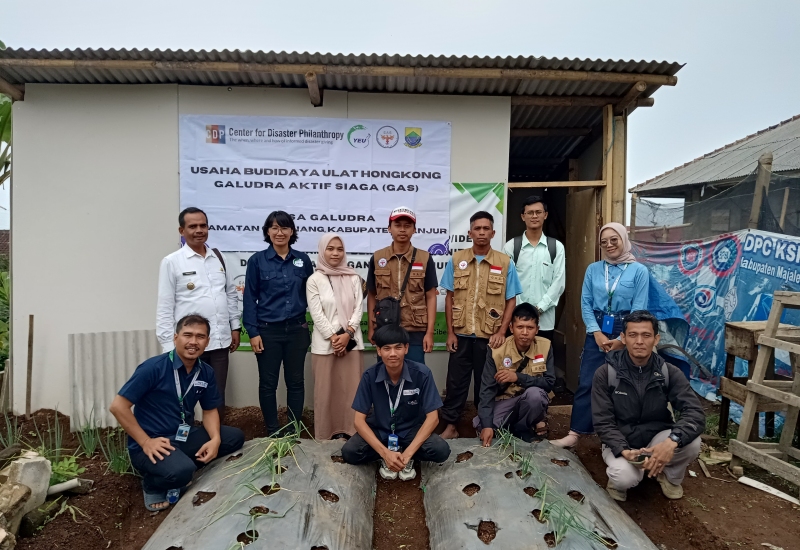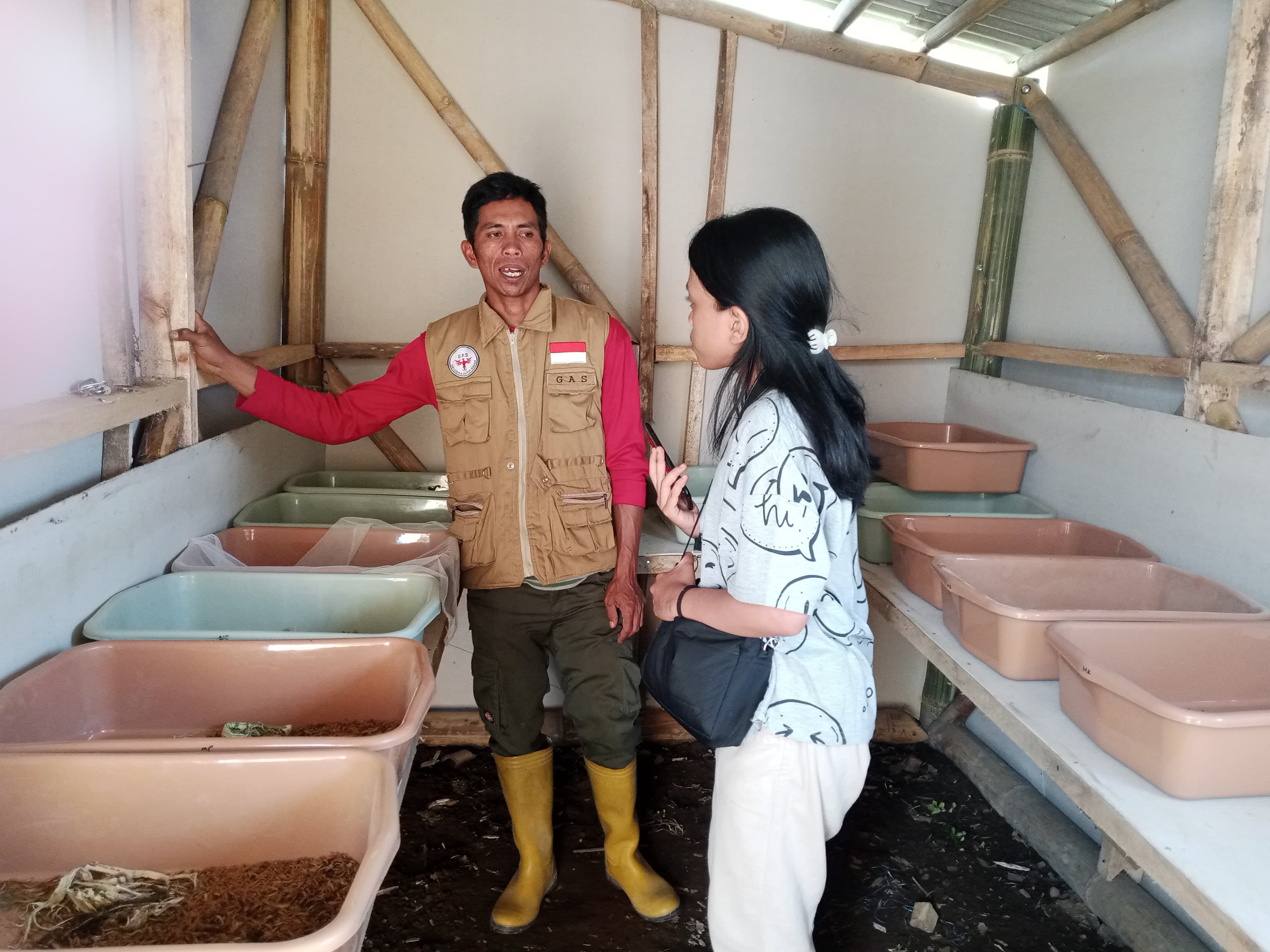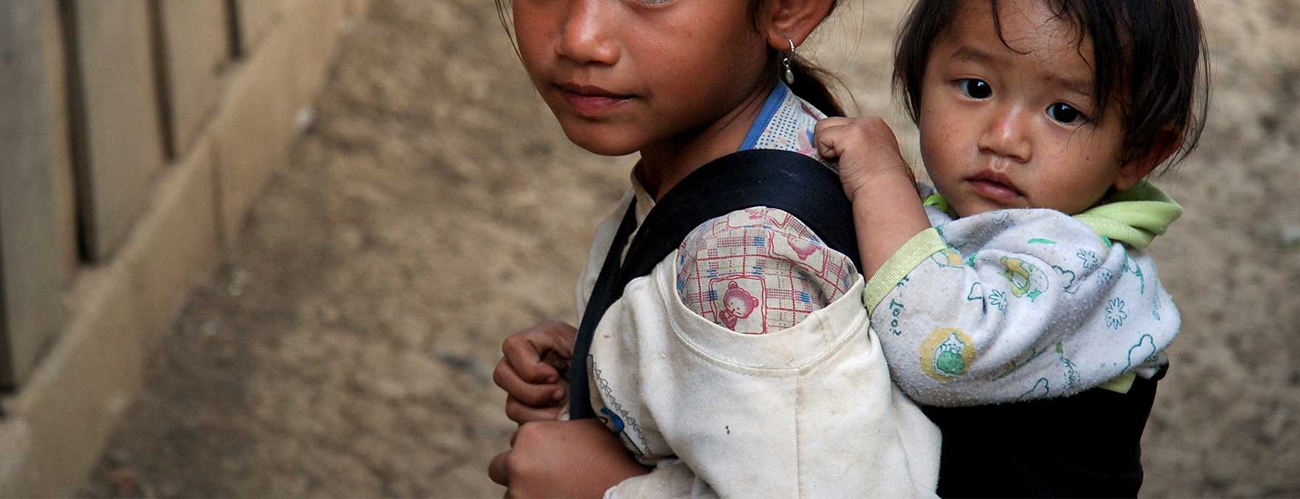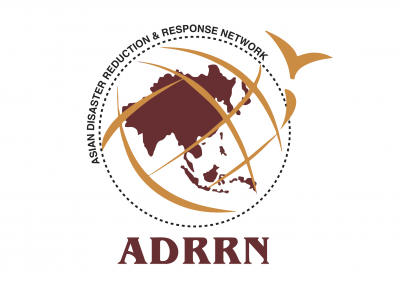
Cianjur - Galudra Village is one of the villages in Cugenang District, Cianjur Regency, West Java. Galudra village has cool weather and fertile soil due to its location in high elevation, at 1,775 meters above sea level. The area is suitable for growing various kinds of plants. The Galudra community are working as vegetable and flower farmers. However, they encounter problems related to waste from agricultural products. The amount of vegetable or organic waste in Galudra village causes pollution in their environment such as soil, water and air because it causes unpleasant odors. To overcome the organic waste, the Disaster Task Force “Galudra Aktif Siaga” (TSB GAS) took the initiative to build a mealworm farm.

Photo: Nurdin - Member of Disaster Task Force of Galudra Village (TSB GAS)
“As there is a lot of vegetable waste here, we decided to cultivate mealworms,” said Nurdin as the manager of the mealworm farming and a member of TSB GAS. In the development of the mealworm farm, TSB GAS received community resilience funds from YAKKUM Emergency Unit (YEU) which was supported by the Centre of Disaster Philanthropy (CDP).
TSB GAS chose the mealworm as its resilience practice because it is easy to manage and can solve the waste problem in Galudra Village. Organic waste from the agricultural products of the Galudra village community is used as mealworm feed. Feeding the mealworm is done once a day, in the afternoon. Nurdin will give 3 pieces of vegetables or fruits depending on the availability of agricultural waste. Nurdin is assisted by two of his colleagues who are also members of TSB GAS in managing and caring for the mealworm.
The initial process of mealworm farming in Galudra Village was buying the baby mealworm and then taking care of them and feeding them every day. There are three boxes provided to sort the mealworm based on their size. The first box is for baby mealworms, the second box is for mealworms that are slightly larger than the first box and the third box contains large-sized mealworms that are ready to be harvested. It takes 20-25 days until the mealworms are ready to be harvested and sold.
The mealworm farming in Galudra Village has been running for about a month and has produced approximately two kilograms of mealworm. The two kilograms of mealworm were sold to local communities for animal feed such as birds, chickens, and others. The mealworms are sold at IDR 15,000 per ounce. The profit will be used for running the operational costs of the farm. The mealworm farming does not only help solving the problem of agricultural waste, but also serves as preparedness funds for Galudra Village in the event of a disaster.


























Social Media
@yakkumemergency
yakkumemergency